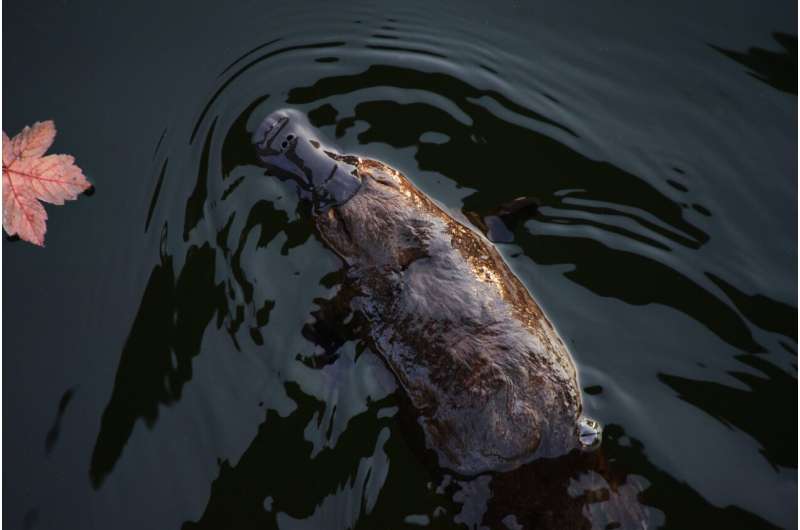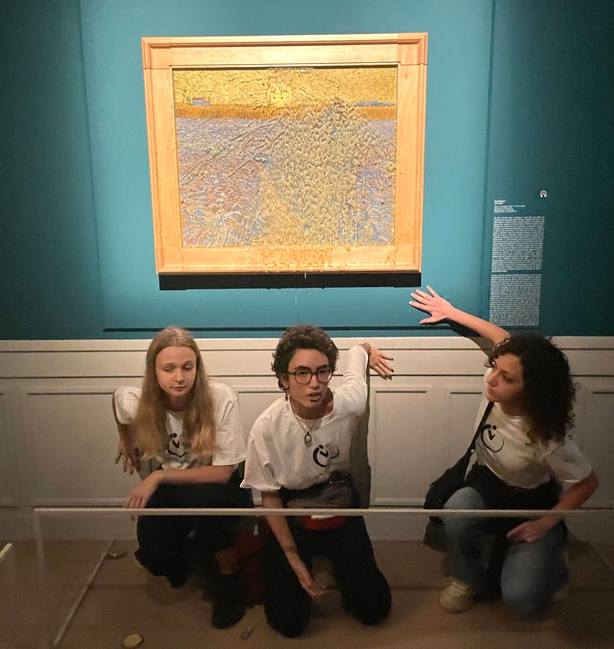The Platypus—God's Little Joke—May Be Killed Off by River Dams
Platypus populations in Australia are becoming increasingly isolated as their habitats are fragmented by human-made dams. As a result, the long-term survival of this distinctive species is falling under threat.
A report in 2020 estimated that the area occupied by the beloved platypus has shrunk by at least 22 percent over the past 30 years. The species has recently been classed as "Near Threatened" by the International Union for Conservation of Nature because of its declining populations.
Large dams, over 30 feet high, pose a major threat to freshwater species, like platypuses, by limiting their migration and altering seasonal flow patterns. In a study, published by the journal Nature Communications Biology, Luis Mijangos and colleagues used DNA analysis to study the impact of dam construction on platypus populations.
"In our study, we use genetic differentiation to give us an idea of whether platypuses are able to get around dams," Mijangos told Newsweek. "We found that genetic differentiation between groups above and below dams were much higher than genetic differentiation between populations in rivers without dams and that this genetic differentiation was increasing linearly across time.
"These results suggest that almost no, or no, platypuses have passed around the dams since they were built, so now we can be more certain that dams are likely impassable barriers for platypuses."
This fragmentation poses a serious threat to the long-term survival of the species. "When there is no connectivity between populations...the ability to recolonise available habitat or migrate to areas with more suitable conditions is restricted," Mijangos said. "Fragmentation also simultaneously reduces both local population size and gene flow, each of which is expected to lead to increased inbreeding and reduction of the genetic variation necessary for adaptation."

Photo of a platypus wrapped in a towel. Platypus populations are becoming increasingly fragmented due to the construction of man-made river dams. Gilad Bino© Gilad Bino
In the face of habitat disruption, pollution, climate change and predation by invasive species, the ability to adapt to new environments is becoming more important than ever before. However, to be able to adapt, a species needs to have a diverse, well-mixed gene pool. When populations become fragmented, this genetic mixing becomes harder to achieve.
The platypus has previously been described as "God's little joke" due to its unusual combination of features: while it has fur and produces milk like a mammal, it also lays eggs and has a bill and webbed feet like a duck; the male platypus produces venom from spurs on its hind legs which, while lethal, may have potential as a treatment for diabetes; its coat glows green under UV light and it uses electroreception to find food underwater.
"Platypuses are arguably the most irreplaceable mammal," Mijangos said.
The study's authors have recommended the introduction of strategies to promote platypus population mixing, such as developing "platypus-ways" to help the animals climb over dams. Water quality and riverbank restoration will also be important, and further research will be required to gain a better understanding of the breeding requirements of this unique species.
Platypus populations impacted by large river dams are more vulnerable to threats

The platypus is possibly the most irreplaceable mammal existing today. They have a unique combination of characteristics, including egg-laying despite being mammals, venomous spurs in males, electroreception for locating prey, biofluorescent fur, multiple sex chromosomes, and the longest evolutionary history in mammals.
Platypuses are a threatened species in some Australian states and their conservation is of concern more broadly, due to known decline in their populations.
A new study published in Communications Biology examined the genetic makeup of platypuses in free-flowing and nearby rivers with large dams in New South Wales. These included the free-flowing Ovens River, along with the dammed Mitta Mitta River, and the free-flowing Tenterfield Creek, along with the nearby Severn River regulated by a large dam.
The study found that large dams are significant barriers to platypus movements. This was reflected in greater genetic differentiation between platypuses above and below large dams compared to rivers without dams. Importantly, this genetic differentiation increased over time since the dam was built, reflecting the long-term impacts of the dam.
"We extracted the DNA from the blood collected by our Platypus Conservation Initiative researchers at UNSW. By using thousands of molecular markers, we were able to identify a strong signal indicating that genetic differentiation increased rapidly between platypuses below and above these large dams," said lead author Dr. Luis Mijangos, a former UNSW Ph.D. student who is now at the University of Canberra.
Professor Richard Kingsford, Director of the UNSW Center for Ecosystem Science and one of the paper's authors, said, "This is a profound result with significant implications for platypus conservation.
"We've long suspected that prey can restrict platypus movements, but this is the 'smoking gun.' These animals just can't get around big dams."
This movement restriction of platypuses separated by large dams means there is limited or no gene flow between groups, making these separate populations increasingly vulnerable to threats. There is increased possibility of inbreeding depression, loss of adaptive genetic variation, failure to recolonize areas where local extinctions have occurred, and failure to disperse to areas with more suitable conditions.
"We know that platypuses are declining in many parts of their range in eastern Australia, affected by many threats. This study identifies one of the main threats to this iconic species," said Dr. Gilad Bino, leader of the Platypus Conservation Initiative at UNSW Sydney and another author of the study.
"There is still much we don't know about the ecology of the platypus, but given its international status as a monotreme, it is increasingly vital that we understand and manage the threats to this unique species."
The authors recommend that water conservation and management planning should consider alternative approaches to large dams. These could include storing water in off-river reservoirs and implementing strategies to reduce the effects of dams, such as the artificial relocation of individual platypuses between groups above and below dams, or the construction of passage structures that increase dispersal.
More information: Luis Mijangos, Fragmentation by major dams and implications for the future viability of platypus populations, Communications Biology (2022). DOI: 10.1038/s42003-022-04038-9. www.nature.com/articles/s42003-022-04038-9
Journal information: Communications Biology
Provided by University of New South Wales
Changes to river flows are having a 'damming' impact on platypuses












